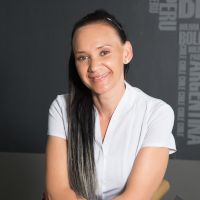Q: What’s your view on the state of the SA corporate travel market?
A: In South Africa, the corporate and government travel market is worth an estimated R25 billion. ($1.6 billion). Demand for business travel in SA is expected to remain strong. FCTG’s corporate brands all foresee healthy growth ahead in the entire corporate sector, from small to medium and large enterprises.
Q: What was the thinking behind the new FCTG technology offering?
A: When FCM Travel Solutions introduced its travel chatbot, Sam,it was designed to incorporate the most important features a business traveller needs. The travel bot makes recommendations and performs actions relevant to the individual traveller’s trip, assisting business travellers with everything from itinerary management, flight updates and local weather forecasts to security notifications, taxis and transfers and city guides and destination information. However, Sam is not a fixed mobile application and FCM is continuing to evolve its features to meet users’ requirements and match AI/chatbot technology developments.
Q: Does FCTG believe it needs to move in this direction to remain relevant and attractive to customers?
A: Technological innovation has become a non-negotiable requirement in today’s corporate travel. However, although technology plays an increasingly important role, the corporate travel landscape is also about to get a whole lot more ‘human’.
Q: What’s your view on the rate of technology adoption in the SA corporate travel industry?
A: Technology adoption in the workplace has been fragmented across the generations. Research shows that more than 74% of millennials believe new technology makes their lives easier, compared to 31% of Generation X and just 18% of Baby Boomers. Technology’s rapid evolution has led to a surge of digital tools in every area of a corporate’s life. In travel, these tools can not only enhance the travel and booking experience for the traveller, they can also lead to lower transaction fees for the company. However, although companies are often keen to drive tech adoption among their employees, this can create friction. Some employees are simply more tech-ready than others.
Q: What are your thoughts on traveller-centric versus costcentric programmes?
A: Booking cheap airfares and adopting a cost-centric travel progamme might be to the detriment of the corporate traveller. In fact, the less travel friction experienced by a business traveller before, during and after the trip, the more productive the journey and the greater the return on investment from that trip. Important savings are rarely achieved by forcing employees to use discount airlines and cheap hotels.
Q: There’s currently a lot of talk about a personalised travel experience. What is FCTG doing to implement this in the corporate travel space?
A: In corporate travel, technology and data can reveal patterns, trends and business insights to help profile the corporate traveller. By interpreting Big Data, FCM has significantly reduced traveller friction. By identifying how your travellers behave in the travel decisions they take, you’ll be able to forge a closer connection with them and help reduce traveller friction and increase compliance with the travel policy. FCM uses data to gauge booking class usage, low-cost carrier preferences, hours in the air, single flight leg trends, travel over weekends and other metrics. It also considers cost increases around these factors and what changes occur when new ideas around traveller welfare are implemented. Predictive functionality presents only the choices that are going to be most pleasing to that individual traveller, speeding up the process of planning and booking and even further cost savings.
Q: How are you finding the integration of IATA’s New Distribution Capability in the TMC space?
A: FCM Travel Solutions is accelerating the global NDC technology drive with Amadeus. FCM Travel Solutions SA will enter a testing phase with the new graphical NDC-enabled user interface within Amadeus Selling Platform Connect. The design incorporates FCM’s feedback and creates an intuitive user experience that caters to the diverse booking needs across different markets. NDC will increasingly become a reality, but our goal has always been to balance the short-term priorities of NDC with building a long-term, workable solution with our technology partners at Amadeus.
Q: Do you feel there’s a place for the sharing economy in the world of corporate travel?
A: From a travel perspective, the sharing economy has been responsible for one of the industry’s biggest shake-ups, impacting international, domestic business and leisure travellers. The most successful disruptors to date – Uber and Airbnb – have become household names and other suppliers are constantly emerging to challenge the status quo. As the sharing economy becomes more prevalent in corporate travel, modern road warriors expect these suppliers to be featured in their solutions. However, the peer-to-peer product should be handled the same way as any other travel transaction, with travellers able to claim back or track costs by uploading receipts through an integrated mobile app.

